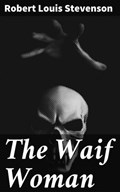In "The Waif Woman," Robert Louis Stevenson crafts a poignant narrative that delves into themes of love, loss, and the complex dynamics of human relationships. Written in 1890, this novella employs Stevenson'Äôs trademark lyrical prose and vivid characterizations, drawing readers into a richly detailed world. The story follows the emotional odyssey of its protagonist, reflecting the Victorian era's moral dilemmas and the societal challenges facing women, particularly those on the fringes of society. Through meticulous dialogue and evocative descriptions, Stevenson illuminates the plight of the titular Waif Woman, exploring the interplay between compassion and societal judgment. Robert Louis Stevenson, a Scottish novelist, and essayist, was known for his adventurous tales and explorations of the human condition. His own diverse life experiences, steeped in travel and encounters with marginalized individuals, likely informed his empathetic portrayal of the Waif Woman. Stevenson's literary influences ranged from gothic fiction to realism, allowing him to navigate the modernist sensibilities of his time, bringing depth to his characterizations and narratives. Readers seeking a rich exploration of identity and social critique will find "The Waif Woman" a rewarding addition to their literary collection. Stevenson'Äôs adept storytelling and profound insight into the complexities of human emotion make this novella a compelling read that resonates with contemporary themes, urging reflection on human dignity and compassion.

